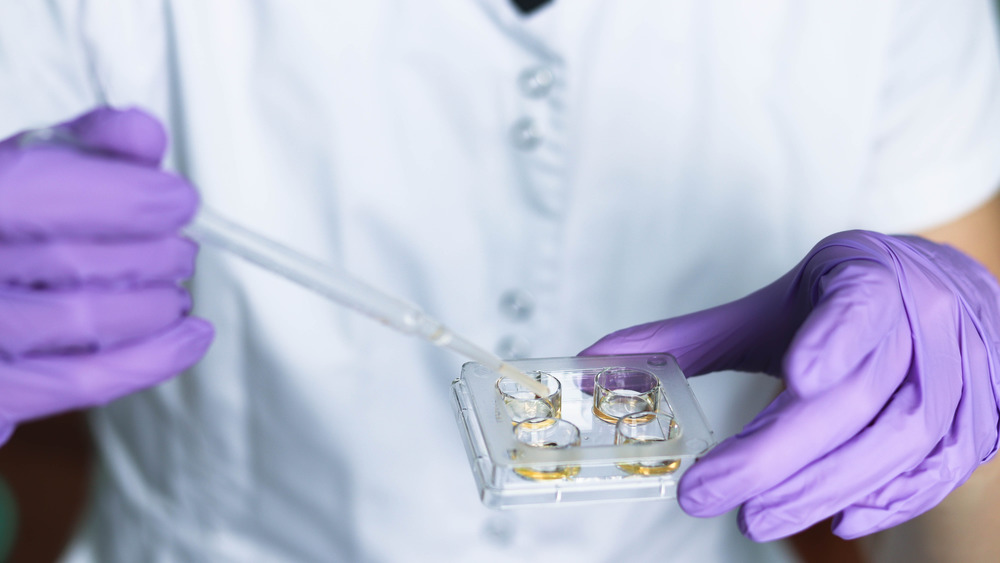Here's Why You Should Think About Freezing Your Eggs Because Of COVID
According to Dr. Zaher Merhi, MD, HCLD, FACOG, and Founder of Rejuvenating Fertility Center, there are many reasons to consider freezing your eggs during the pandemic, more than any other time. They range from financial, to practical reasons, with Dr. Merhi telling The List, "Lots of people are losing their jobs. So if a woman has insurance that covers egg freezing, she should use her insurance now."
Thankfully, not everyone will be in this boat, but women have several other grounds for seriously contemplating freezing eggs. One of them is simple: "Women have more free time because they are not traveling or socializing due to COVID," Dr. Mehri told us, adding that for others, "Dating is hard due to social distancing, so fewer people are finding a new partner." Thus, there is no time like the present to "freeze their eggs and not just keep waiting."
Another rationale for getting the ball rolling on the egg freezing process has to do with wanting to keep the process discrete. "Fewer people are outside, so the woman is less likely to be seen by a friend or relative going to a fertility clinic," Dr. Mehri notes.
Who should consider freezing their eggs
Dr. Mehri told The List having fewer occasions to spend discretionary income is another impetus for women who are freezing their eggs during COVID. "Because women are spending less money on vacations and other activities, they have more money reserved to spend on egg freezing," he explained. Social isolation is also giving us more time to think, with the doctor noting, "More single women are reflecting on their future, and realizing that egg freezing is something that they need."
Sound like you? Dr. Mehri shared how to know if you are a good candidate for egg freezing, noting, "As long as there are eggs, there is always a chance to freeze eggs." He added, "It is never too early to freeze eggs but usually once a woman reaches the age of 30, she should consider egg freezing very seriously." He recommends the process in several circumstances, telling The List, "Women who are not currently ready to get pregnant and want to have children in the future" are good candidates, as are "Women who are in same sex relationships who desire to have children in the near future."
A woman who would like to donate eggs, or use a gestational carrier should also look into egg freezing.
What egg freezing involves
Dr. Mehri explains the egg freezing process, saying, "In order to retrieve eggs for freezing, a patient undergoes the same process as in-vitro fertilization (IVF). The only difference is that sperm is not added to the eggs to make embryos." As for how long the process is, he notes, "It takes approximately two weeks to complete the egg freezing cycle."
In more detail, here is what the timeline looks like, with Dr. Mehri explaining, "When the patient gets her period, she is asked to come to the office to start the cycle. She will then undergo blood work and an ultrasound to make sure that her body is ready. Then she will take medications — oral pills with an injection — daily for 10 to 12 days to stimulate the ovaries and mature the eggs."
He goes on to elaborate, "Once the eggs are mature, they are removed with a needle, placed through the vagina, under ultrasound guidance. This procedure is done under local anesthesia in the vaginal area, or under intravenous sedation and should not be painful."
Finally, he told The List, "The eggs are then immediately frozen. When the patient is ready to attempt pregnancy, the eggs are thawed, injected with a single sperm to achieve fertilization, and transferred to the uterus as embryos." Amazingly, eggs can stay frozen for upwards of 25 years, with the doctor noting, "Even if the patient is postmenopausal, she can still get pregnant using her own eggs, as long as she is healthy."


